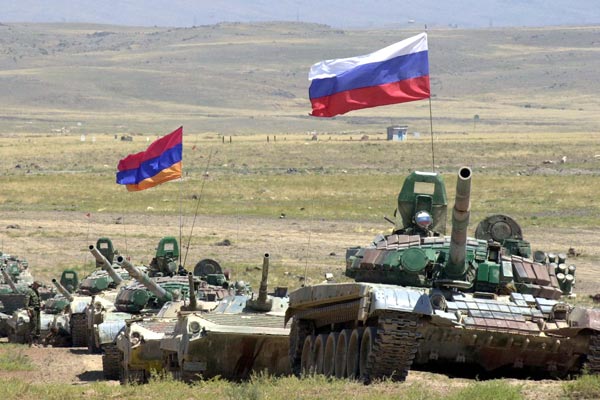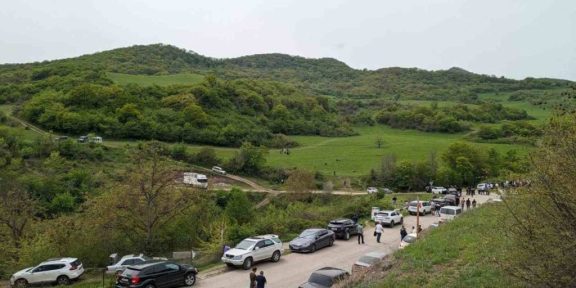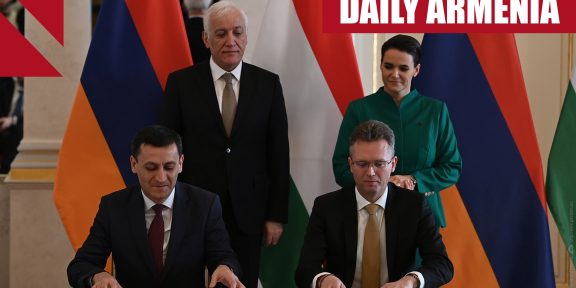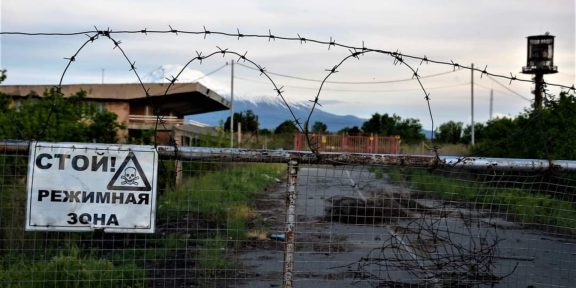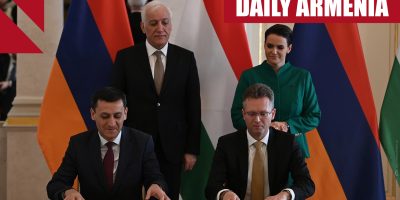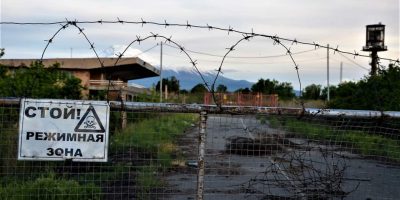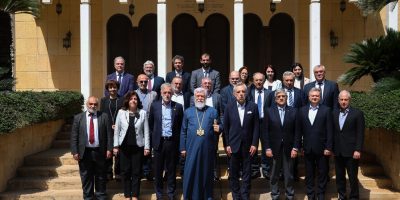 Armenian and Russian troops during a military exercise, 2014.
Armenian and Russian troops during a military exercise, 2014.
On Wednesday December 23, Defense Minister Seyran Ohanyan of Armenia and his Russian counterpart Sergei Shoigu signed a security deal in Moscow to establish a joint regional air defense system.
The move reinforces Armenia and Russia’s already close military ties and raises questions about how this deal will fit into the framework of the post-Soviet Collective Security Treaty Organization (CSTO).
In addition to Russia and Armenia, the six-country CSTO includes Belarus and Kazakhstan which already have similar deals with Russia as that which was just signed with Armenia. Similar deals are also reportedly on the horizon for the remaining two member states, Kyrgyzstan and Tajikistan.
The Russia-Armenia military alliance largely consists of Armenia receiving Russian weapons for free or at discounted costs, or receiving loans intended for purchasing Russian weapons.
According to Armenia’s Southern Military District, throughout the month of December when tensions with Azerbaijan were rising, Russia deployed several Mi-24 Hind attack helicopters and Mi-8MT transport helicopters to the Russian base Erebuni in Armenia, the air component of Russia’s 102nd military base in Gyumri.
On Monday December 21, the CSTO held a meeting during which Armenian President Serzh Sargsyan underscored the importance of implementing a closer political and military alliance among member states, suggesting that an attack on Armenia was an attack on them all. He urged them to follow the same “all for one and one for all” principle that protected Turkey from its fellow NATO members’ criticism when it shot down a Russian aircraft near the Syrian border in late November.
On Tuesday December 22, Armenia’s Defense Ministry announced that the “ceasefire” with Azerbaijan over Nagorno-Karabakh has become outright war, following heavy tank shelling by the Azerbaijani side for the first time since 1994.
Azerbaijan was part of the CSTO from its creation in 1994 until it discontinued its membership in 1999 and joined the GUAM alliance with Georgia, Ukraine and Moldova, which is seen as a counter to Russian influence. Armenian leaders are critical of Russia’s arms deals with Azerbaijan which seem to contradict its military commitment to Armenia.
The plans for the deal signed on Wednesday had been in preparation for months and were authorized for negotiation by Russian President Vladimir Putin in November, but their signing on Wednesday comes at a particular time when regional tensions with Azerbaijan and its ally Turkey seem to be rising to a level that has not been seen in decades.




